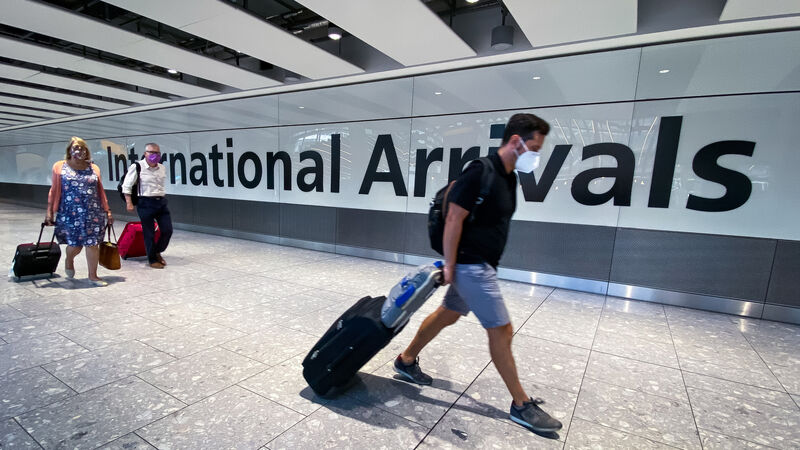Covid-19 tests in Ireland being examined to establish if Omicron is here

Dr Allison Glass of the Lancet Laboratory in Johannesburg expressed disappointment that travel restrictions had been imposed on South Africa when the reality was that such information was important to plan for a possible surge, she said. File Picture: PA
Eleven positive tests for Covid-19 are being further examined to see if they are the new coronavirus variant, Omicron, the Government has said.
Health Minister Stephen Donnelly said there are “more than 10” possible cases of the Omicron variant of Covid-19 in Ireland. He said a trawl of samples being undertaken has found “just over 10” cases with what is called “S-gene dropout”, which is associated with Omicron.










